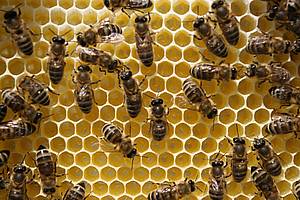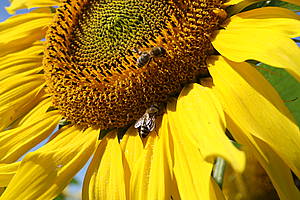Project C2 Steffan-Dewenter/Härtel
Timing of colony phenology and foraging activity in honeybees
Summary
The honeybee (Apis mellifera) is the only bee species in Europe which maintains social colonies throughout the year. This life history strategy puts high demands on the seasonal timing of colony development with brood onset after hibernation as one critical decision point and the efficient use of floral food resources that show large daily and seasonal variability in quality and quantity as a second key factor.
Genetic diversity of colonies and regional adaptation of honeybee populations might reduce risks imposed by mismatches of colony development with abiotic and biotic environmental conditions. Efficient foraging is supported by intra-colony communication via bee dances and a highly developed time memory, but the relevance of timing for individual forager performance and colony development is little understood. The objectives of this project are:
- To analyse the relevance of communication and time memory for individual forager performance.
- To explore the timing of brood phenology in relation to environmental and genetic determinants.
- To assess the fitness relevance of daily and seasonal timing for honeybee colonies in the context of spatial and temporal resource and climate variation. Our work will be based on a combination of laboratory, climate chamber, and field experiments and the exploration of existing long-term data sets.

Fig. 1: Timing of brood phenology (courtesy by Susanne Schiele)

Fig. 2: Timing of resource use (courtesy by Susanne Schiele)





